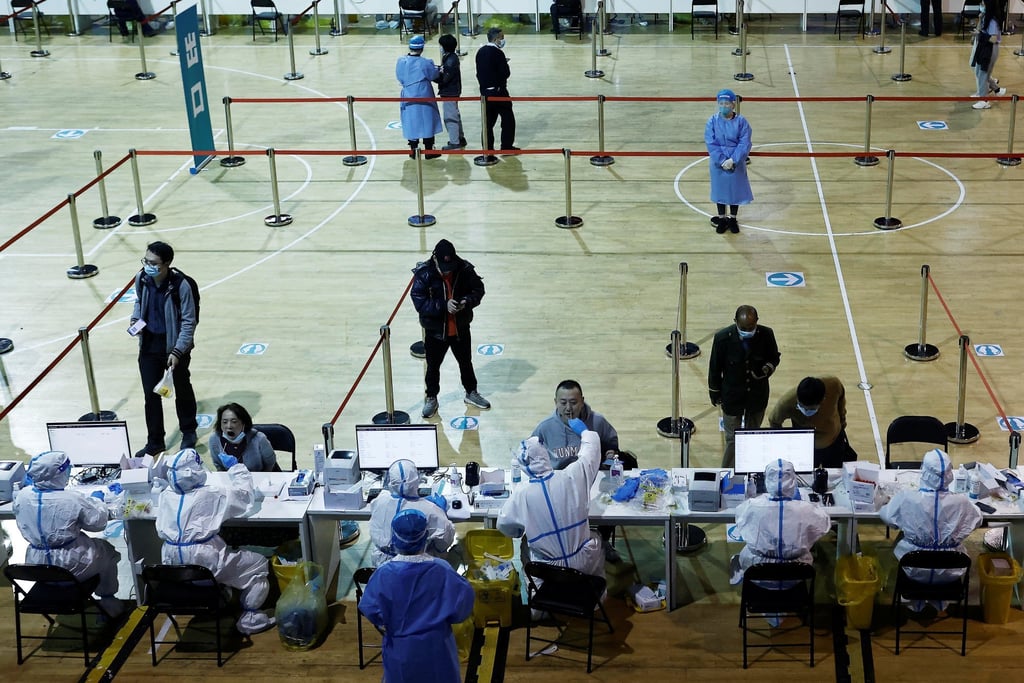Shanghai scraps hundreds of inbound and outbound flights as travellers skip city amid a resurgent Covid-19 outbreak
- About 800 arrivals and departures via Shanghai’s Pudong airport were cancelled as of 4pm on Monday, compared with 825 flights every day last month
- At Hongqiao, nearly 500 services were cancelled at an airfield that handled 575 daily flights in February

Hundreds of flights to Shanghai were cancelled on Monday amid a resurgence in the city’s Covid-19 infections, even as local authorities remained tight-lipped on the possibility of a complete lockdown of China’s commercial hub.
All inbound and outbound travellers through Shanghai’s airports and railway stations must present negative nucleic acid tests taken within 48 hours of their journeys, the city’s transport commission deputy director Wang Xiaojie said during an online press briefing, advising residents to avoid “unnecessary” travel.
About 800 arrivals and departures via Shanghai’s Pudong airport were cancelled as of 4pm on Monday, compared with 825 flights every day last month, according to VariFlight Technology, a Chinese provider of aviation data. At Hongqiao, nearly 500 services were cancelled at an airfield that handled 575 daily flights in February.
“The outbreak has sent a chill down the spines of passengers and tourism industry employees,” said Franco Feng, CEO of Shenxiaokou, a Shanghai-based travel service firm. “People are worried about a citywide lockdown in Shanghai too.”

About 900 infections had broken out since the beginning of March all over Shanghai, a city of 25 million residents, threatening to upend the city’s ability to keep Covid-19 at bay, where only 400 infections and seven deaths were recorded in the two years since the coronavirus broke out. Shanghai had often been lauded for eschewing the over-the-top quarantine measures adopted by some other Chinese cities.
On Sunday night, Shenzhen announced it would go into lockdown, suspending all subway and bus services while restricting residents’ movement in communities.